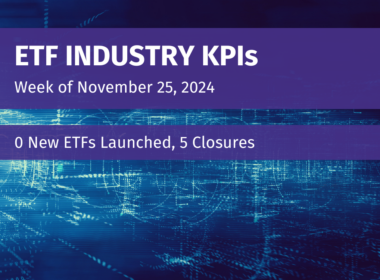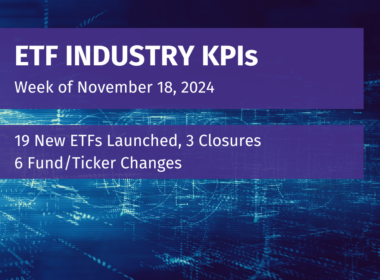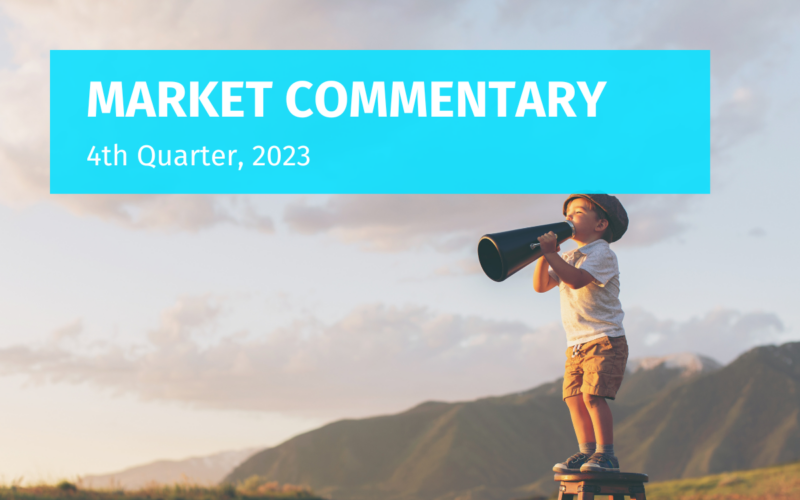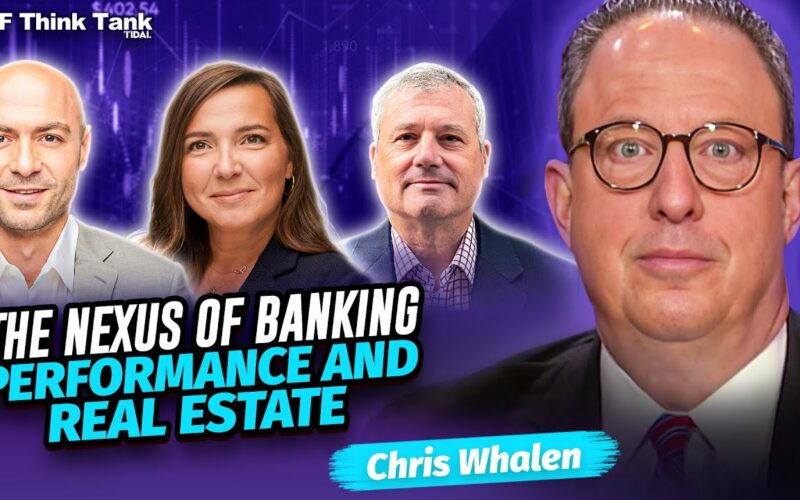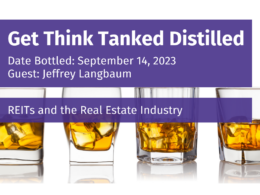Why do financial institutions and governments fail to address potential problems before they become major issues? Michele Wucker refers to these events as “gray rhinos” — highly probable outcomes yet are neglected by those in position to act. In her book, she discusses the thought processes behind these and she joins the ETF Think Tank to discuss the thought processes that go on around these events and how people can see the gray rhino coming so they don’t get trampled by it.
Wucker explains that gray rhinos can appear anywhere, though the banking sector is just the most recent example. A couple years ago, everybody knew that interest rates were going up and anticipated it before it happened. Some people, such as those at Silicon Valley Bank (SVB), either weren’t paying attention or weren’t buying it. Not only did SVB keep portfolio duration way too high on their books, but they also held those Treasuries on their books at face value. That’s fine until you need to sell them and mark them to market. In essence, SVB prioritized paper profits over proper risk management and what they were doing was simply delaying the day of reckoning. It’s a thought process that happens more often than you think – overweighting the outcomes that make you feel good and minimizing those that would cause pain.
The concept of “gray rhinos” appears almost everywhere, not just in the financial world. For example, Wucker’s think tanks developed debt restructuring proposals for Greece & Argentina before they became larger issues later. Financial & real estate risk in China, peer-to-peer lending sites, food security and climate change are just a few of the examples of what could become the next gray rhino. These are the things that everybody is talking about, but few are doing something about. These things are widely discussed, and they can be applicable to both personal and business situations.
The exposure of community & regional banks to commercial real estate represents another potential gray rhino. Wucker says that she’s an advocate of early intervention and restructuring to address these problems. She notes that many cities may take big hits in terms of property taxes, so they should be incentivized to address the problem now. A few of the ideas she had were to offer some type of incentives to do property enhancements, convert existing buildings to multi-use, change zoning laws and update municipal budgets. These banks have better relationships with those who are the “heart” of the economy and it’s important that they’re on board with these restructuring efforts.
Wucker emphasizes the importance of addressing these issues as much as we can, but sometimes the gray rhino needs to trample something in order to fix it. The important thing is to identify what needs to happen and who can make it happen. It’s possible that a larger government entity may need to be created to tackle this. Wucker doesn’t know if that’s the “right” solution, but it’s a question that needs to be asked. It should have happened yesterday, but today is the next best time.
What are the risks that currently keep Wucker up at night? She highlights that financial system fragilities and asset bubbles are significant worries. Climate change concerns are another. Insurance companies that are becoming less well capitalized and pulling out of certain areas of the country have a big potential for trouble as well. Geopolitics, especially in China, seem to be an omnipresent issue since there are more conflicts now than there have been in recent memory. Artificial intelligence and the misallocation of capital is another.
Other key takeaways:
- In all situations, we should try to avoid hitting the final stage of panic. We need to create a sense of urgency before panic and take action before something breaks.
- The ability to backtrack and change course based on results (e.g. new Coke) is important. Unintended consequences should be tracked as well. Start moving on hard decisions early. That’s going to be the thing that eases the pain the quickest.
- If you don’t put enough oil into the economic engine, bad things start to happen. You have to lubricate the lower income parts of the economic spectrum because that’s where the spending cuts are going to happen. We need to be spending more time looking at the human impact of AI, not just pouring more investment dollars into growing it. How can you keep the economic engine going?
- Some think tanks can produce good ideas, but the most innovative ideas are usually viewed as being too out there. Foundations will ask about how they measure success or deliverables and that’s difficult for many to quantify. Their outcomes are more qualitative and that doesn’t necessarily look good to funders. The best think tanks have ideas and put together the research to support conclusions, bring together different views and stakeholders. The most productive conversations come from bipartisan groups.
Disclosure
All investments involve risk, including possible loss of principal.
The material provided here is for informational purposes only and should not be considered an individualized recommendation or personalized investment advice. The investment strategies mentioned here may not be suitable for everyone. Each investor needs to review an investment strategy for his or her own particular situation before making any investment decision.
All expressions of opinion are subject to change without notice in reaction to shifting market conditions. Data contained herein from third-party providers is obtained from what are considered reliable sources. However, its accuracy, completeness, or reliability cannot be guaranteed.
Examples provided are for illustrative purposes only and not intended to be reflective of results you can expect to achieve.
The value of investments and the income from them can go down as well as up and investors may not get back the amounts originally invested, and can be affected by changes in interest rates, exchange rates, general market conditions, political, social, and economic developments, and other variable factors. Investment involves risks including but not limited to, possible delays in payments and loss of income or capital. Neither Tidal nor any of its affiliates guarantees any rate of return or the return of capital invested. This commentary material is available for informational purposes only and nothing herein constitutes an offer to sell or a solicitation of an offer to buy any security and nothing herein should be construed as such. All investment strategies and investments involve risk of loss, including the possible loss of all amounts invested, and nothing herein should be construed as a guarantee of any specific outcome or profit. While we have gathered the information presented herein from sources that we believe to be reliable, we cannot guarantee the accuracy or completeness of the information presented and the information presented should not be relied upon as such. Any opinions expressed herein are our opinions and are current only as of the date of distribution, and are subject to change without notice. We disclaim any obligation to provide revised opinions in the event of changed circumstances.
The information in this material is confidential and proprietary and may not be used other than by the intended user. Neither Tidal nor its affiliates or any of their officers or employees of Tidal accepts any liability whatsoever for any loss arising from any use of this material or its contents. This material may not be reproduced, distributed, or published without prior written permission from Tidal. Distribution of this material may be restricted in certain jurisdictions. Any persons coming into possession of this material should seek advice for details of and observe such restrictions (if any).




